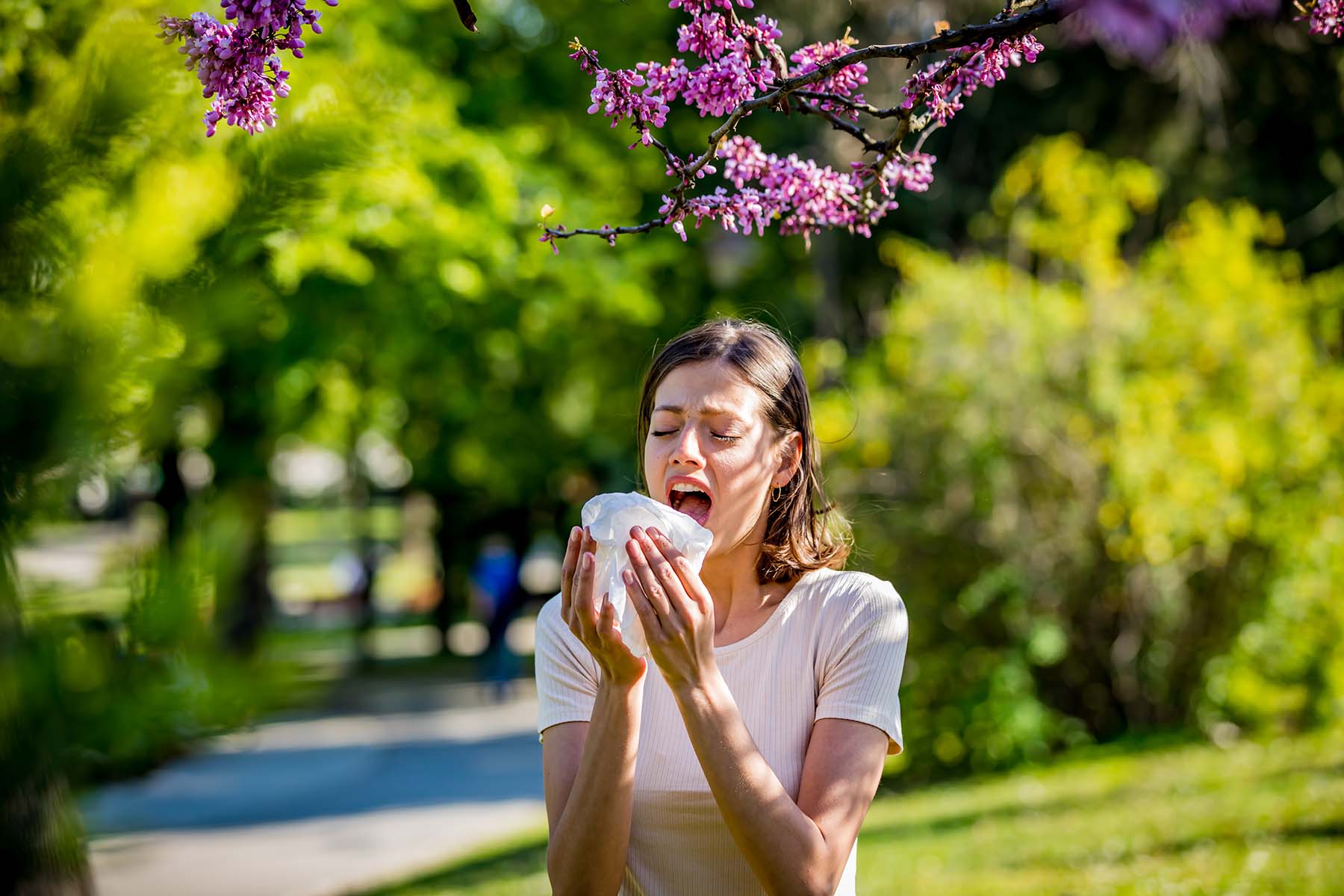What is the Impact of Longer Pollen Seasons in Florida?

If you’re a seasonal allergy sufferer, you’re not going to like this news.
Recent research pretty convincingly shows that pollen seasons are getting longer, and pollen concentrations are increasing.
In fact, data from the American College of Allergy, Asthma & Immunology (ACAAI) shows a 20-day increase in duration and a 21% increase in pollen concentrations between 1990 and 2018.
This is based on pollen counts from 60 stations across North America taken throughout that 28-year time frame.
A year-long pollen season in Florida?
The implications of this for Floridians could be a pollen season that lasts almost year-round, says Naresh Kumar, Ph.D., a public health sciences expert at the University of Miami Health System.
“While longer pollen seasons affect all regions, most of the country is still brutally cold in February,” says Dr. Kumar. “In Florida, we are seeing pollen concentrations popping up by the end of January and becoming quite high even in February.”
Heat, humidity, and CO2
According to Dr. Kumar, pollen season is becoming longer and more aggressive due to several factors. But the most significant contributor is the increased warming trend and CO2 that we’ve experienced in recent years.
“Plants thrive in heat and humidity, and we are beginning to see more of that year after year,” he says. “Also, as we have more invasive plant species becoming established in new areas, and that also leads to exposure to new allergens.”
The ACAAI says that not only are plants sprouting up earlier and producing more pollen, but the pollen itself seems to be more allergenic than it was in the past. Exposure to a little bit of pollen may trigger an allergic reaction in some people due to its potency.
That means more sniffling, sneezy, itching, red eyes, and other typical allergy symptoms.
There are other potential implications of more severe allergies, as well.
“Allergies are a disease of inflammation, which exacerbate chronic diseases such as asthma, COPD, insulin resistance, and other conditions,” he says.
Fight back against pollen
Fortunately, you can tackle the longer pollen seasons with the same strategies you use to manage your seasonal allergy symptoms now. You need to be more vigilant in your approach and maybe even start some of these practices earlier than before.
Avoid it as much as possible.
The Asthma and Allergy Foundation of America (AAFA) says pollen counts are typically highest from 5 to 10 a.m. and dusk. They also tend to spike on warm, breezy days, so those are the best times to stay indoors if you can.
Keep your home protected.
By keeping your windows closed, using high-quality HVAC filters, removing shoes, and changing clothes when you enter your home, you can keep the pollen count down indoors, says the AAFA. It’s also a good idea to clean pets off with a towel when they come inside.
Protect yourself outdoors.
If you do have to go outside, you can minimize your exposure with items such as a hat and sunglasses.
If you’re doing yard work, Dr. Kumar suggests adding a mask, goggles, and gloves to your arsenal to keep your exposure low. Then, take a shower immediately when you’re done working outside and wash your clothes to get rid of more pollen.
Check the pollen count.
Checking the pollen count or allergy report for your area is another good way to plan your day. You can get this information as part of your local weather report or pollen count websites.
Manage your allergies with medications.
The over-the-counter antihistamines available for those with seasonal allergies are quite effective and have significantly fewer side effects than those from years past. Dr. Kumar recommends pairing an antihistamine with an occasional saline nasal rinse to flush out allergens and reduce symptoms. The AAFA says that allergy medications are typically most effective if you begin taking them before allergy season begins.
Wyatt Myers is a contributor for UMiami Health News.
